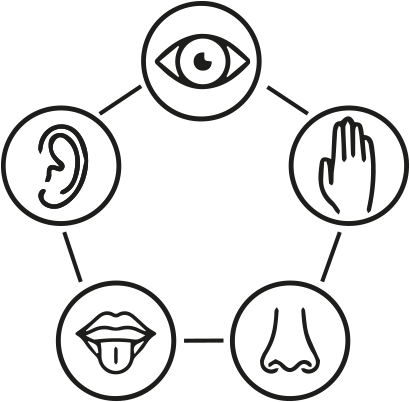Later Imperial China: A Sensory History
| Later Imperial China: A Sensory History
Up until 2018 The University of British Columbia Instructor:
|
| Intended learning outcomes (more on programme level)
The course is devoted to helping students understand how to creatively and rigorously interpret its primary documents (including texts, artifacts, and, where possible, sensations) alongside the best of recent historical writing about Chinese history. Students will gain experience in the art and techniques of advanced historical analysis, using both traditional and non-traditional sources. |
| Learning objectives (course specific)
The course is devoted to helping students understand how to creatively and rigorously interpret its primary documents (including texts, artifacts, and, where possible, sensations) alongside the best of recent historical writing about Chinese history. Students will gain experience in the art and techniques of advanced historical analysis, using both traditional and non-traditional sources. |
| Objective statement (course description)
This course explores the history of China from the Tang empire through the mid-Qing dynasty. Late imperial China is a fascinating historical period. The course is devoted to helping students understand how to creatively and rigorously interpret its primary documents (including texts, artifacts, and, where possible, sensations) alongside the best of recent historical writing about Chinese history. Rather than taking the existence of a timeless and monolithic “China” for granted, we will explore the various ways in which late imperial lands and peoples have been formed and re-formed in order to situate the period within broader narratives of global history. Students will gain experience in the art and techniques of advanced historical analysis, using both traditional and non-traditional sources. Fun will be had. Undue stress, to the extent possible, will be avoided. Deep thoughts will be both conceived, and put on paper, by you. Bad jokes about The Manchu Anatomy will be made. |
| Type of course :
Content course |
| Target group :
Undergraduate or graduate students |
| Pedagogical approach:
Traditional |
| Activities
Keeping up with the weekly reading and assignments, and thinking deeply about them, is absolutely integral to success in this class. You will work hard, you will smell odd things, and at the end of the term you will hopefully have found a path into the study of late imperial Chinese history that excites you. You will get as much out of the course as you put into it. Each course session will include a mixture of lecture and group discussion of the reading material due for that class meeting. You are expected to come to class having done the reading, having thought about it, and being willing to talk about it with the group.
Thinkpieces You are required to post a thinkpiece almost every week by Wednesday at noon, as indicated on the syllabus. This is very, very important. Think of your thinkpieces as spaces to think about the week’s readings and issues before you come to discussion. They will not receive individual letter-grades, but they will collectively form a significant part of your participation grade. Some TPs will have an assigned topic, and some will be completely free-form. There is no required length, and you should use the space as creatively as you’d like: raise questions, argue with the authors you’ve read, work through something in the readings that particularly excited or troubled you, etc. You should be careful and thoughtful in your writing and show that you’ve done the assigned reading. Avoid thinkpieces that merely state “XYZ was interesting.” Wherever possible, cite the course materials. (Check out the thinkpiece rubric for a guide to what you should be shooting for.) Aside from that, the format is up to you. Be creative. Take risks. Use The Force. You’re not required to respond to other students’ posts, but please feel welcome to! |
| Assessment of learning:
To do well in the course, you must:
The grading will be assessed as follows: Participation online and in class (including thinkpieces and attendance): 30% Quizzes (map quiz, date quiz, and 2 reading quizzes): 20% Take-home midterm exam: 25% Final portfolio, revision of 5 thinkpieces plus introduction: 25% |
| Effect (witness account, evaluation of the course)
Unknown |
Additional biblio sources
Smell Fishy
Musk
Week 2 Thinkpiece due Camphor
Incense
Week 3 Thinkpiece due Perfume
In class: Map Quiz Taste Sweet
Week 4 Thinkpiece due Bitter
Drunken
Week 5 Thinkpiece due Salty
Sour
In Class: Reading Quiz 1 Week 6 Thinkpiece due Sound Clang Clang
Tick Tock
Week 7 Thinkpiece due Clap Clap
Sing Sing
Touch Wet
Week 9 Thinkpiece (on Jonathan Spence) due Sharp
Hard
In class: dynastic dates quiz Smooth
Week 11 Thinkpiece Due Sight Body
Line
Week 12 Thinkpiece (on Mark Elliott) due Color
Shine
In class: reading quiz 2 Conclusion
|
